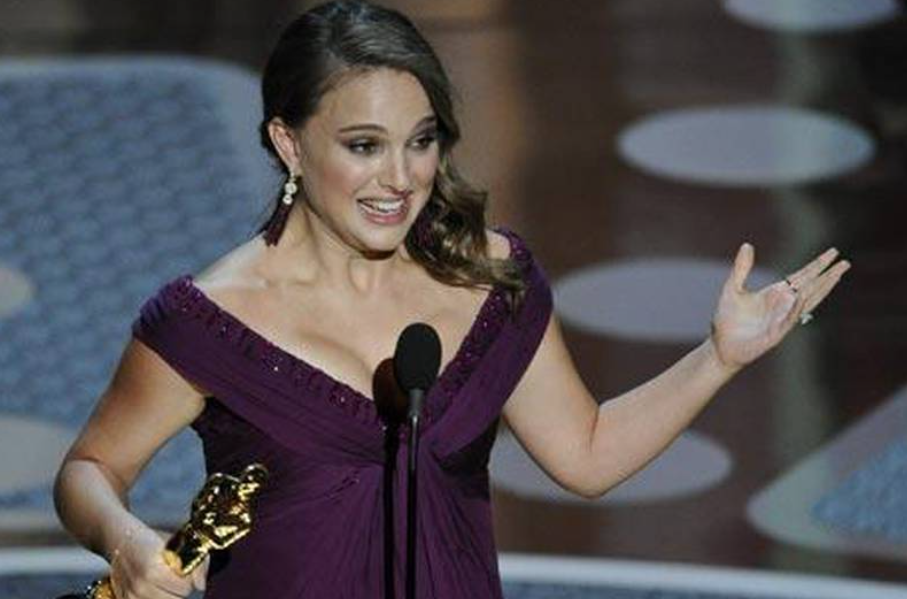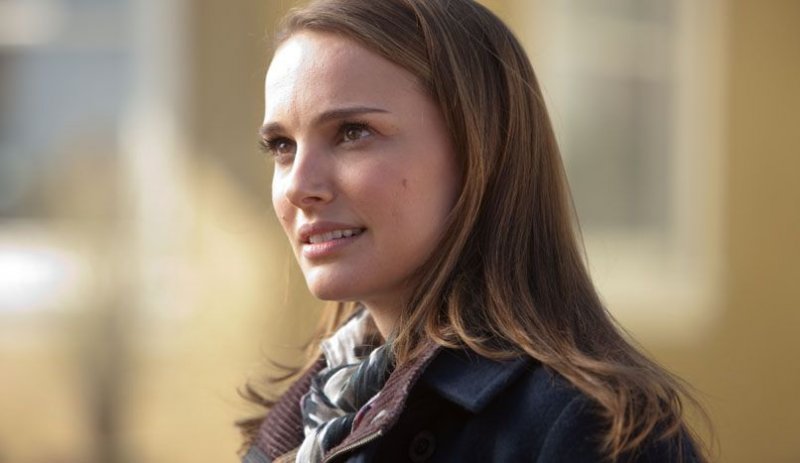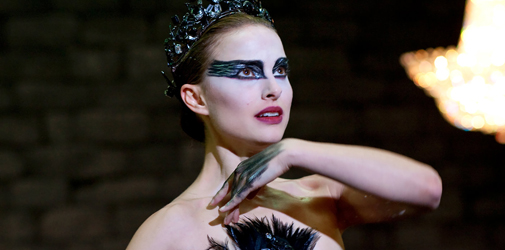A new series by Christopher James

Do one for them; do one for you. If you can still do projects for yourself, you can keep your soul.
— Martin Scorsese: A Journey
An actor’s choices immediately after winning an Oscar says a lot about their aspirations. Winning the prize presents an actor with plenty of newfound opportunities. Some will take the opportunity to get a passion project made, while others will parlay the prize into high profile franchise roles. Since her Oscar win for Black Swan (2010), Natalie Portman has flexed her chops as a writer and director while also taking roles in auteur films, such as Pablo Larraín’s Jackie. However, immediately following Black Swan, Portman had perhaps the busiest year of her career, and the most populist. Her next three films all opened within five months of each other and represented three different genres - swoony romantic comedy, raunchy bro comedy and Marvel franchise. The one commonality: They all tested Natalie Portman’s ability to make us laugh.
How did she fare?
Judging by the amount of Natalie Portman comedies you see today, the answer is “not well.” Watching the committed dramatic actress try her hand at comedy felt a lot like watching a dog walk on its hind legs. She was able to do the job well enough, but there was a sense of uncomfortability and stiffness behind all of these performances. It’s always nice to see an actor stretch themselves. Portman’s career has been marked with countless moments where she has stretched herself, dating all the way back to her breakout in Leon: The Professional. Whether she’s shaving her head for V for Vendetta or undergoing extensive ballet training for Black Swan, Portman is no stranger to discomfort in the name of acting.
 Both "Black Swan" actresses starred in nearly identical romantic comedies in 2011 - Natalie Portman in "No Strings Attached" and Mila Kunis in "Friends With Benefits."Perhaps this is why, of her post-Black Swan movies, her comic stylings come off best in No Strings Attached. Her character, Emma, is not a manic-pixie-dreamgirl (like her Garden State character) and instead is a morose weirdo who loves idiosyncratic outbursts and running away from her feelings. She takes the alpha role in her transactional relationship with Ashton Kutcher’s Adam, an aspiring screenwriter with a famous Father. It’s not just Kutcher that she develops an odd, yet lovely, chemistry with. She crafts a lived in friendship relationship with fellow doctors and roommates, played by Greta Gerwig and Mindy Kaling (what a cast). The film itself will forever be associated with being the first of two nearly identical films, the other being Friends with Benefits with Justin Timberlake and Mila Kunis. While No Strings Attached made more money domestically ($70M versus $55M), both films identically ended up with $149M worldwide. I’ve always preferred the latter due to the oddness of Portman’s characterizations. While predictable, Ivan Reitman’s No Strings Attached represents a movie that isn’t really made anymore. It’s an R-rated romantic comedy marketed towards women that’s about sex just as much as it’s about love.
Both "Black Swan" actresses starred in nearly identical romantic comedies in 2011 - Natalie Portman in "No Strings Attached" and Mila Kunis in "Friends With Benefits."Perhaps this is why, of her post-Black Swan movies, her comic stylings come off best in No Strings Attached. Her character, Emma, is not a manic-pixie-dreamgirl (like her Garden State character) and instead is a morose weirdo who loves idiosyncratic outbursts and running away from her feelings. She takes the alpha role in her transactional relationship with Ashton Kutcher’s Adam, an aspiring screenwriter with a famous Father. It’s not just Kutcher that she develops an odd, yet lovely, chemistry with. She crafts a lived in friendship relationship with fellow doctors and roommates, played by Greta Gerwig and Mindy Kaling (what a cast). The film itself will forever be associated with being the first of two nearly identical films, the other being Friends with Benefits with Justin Timberlake and Mila Kunis. While No Strings Attached made more money domestically ($70M versus $55M), both films identically ended up with $149M worldwide. I’ve always preferred the latter due to the oddness of Portman’s characterizations. While predictable, Ivan Reitman’s No Strings Attached represents a movie that isn’t really made anymore. It’s an R-rated romantic comedy marketed towards women that’s about sex just as much as it’s about love.
One can’t totally pin No Strings Attached as a cash grab when one considers the pay gap that was made public in 2017 around the film. Portman told Marie Claire UK that Ashton Kutcher was paid three times what she was paid for the film. "I knew and I went along with it because there's this thing with 'quotes' in Hollywood. His [salary] was three times higher than mine, so they said he should get three times more,” said Portman. “I wasn't as pissed as I should have been. I mean, we get paid a lot, so it's hard to complain, but the disparity is crazy.” Perhaps this is why we got three “One For Them” choices following her much deserved Oscar win. Even at the height of her career and after being the star of a massive franchise (Star Wars prequels), Portman was only valued at a third of Ashton Kutcher, still best known for the Fox TV show That 70s Show.
 After a nine year hiatus from Marvel, Natalie Portman will reprise her role in the Marvel Universe in "Thor: Love and Thunder."
After a nine year hiatus from Marvel, Natalie Portman will reprise her role in the Marvel Universe in "Thor: Love and Thunder."
Her biggest movie of the year, Thor, may open on her, but that’s only a tease. We first need 30 minutes of Asgard backstory before we get a proper introduction to Natalie Portman’s steely scientist Jane Foster. The start to the Thor series in Marvel is a rocky, yet interesting, film to revisit. There are seeds for the worldbuilding references that will become commonplace throughout the franchise. Yes, the final act devolves into the traditional Marvel blandness and bloat. However, the fish-out-of-water humor and chemistry between Chris Hemsworth’s God and Natalie Portman’s mortal make the film a fun rewatch. Portman gives the “straight man” role a bit of a twist. Rather than be someone “mortified” by Thor’s behavior in not recognizing cultural norms, she finds it funny and charming. Jane is fascinated by Thor and charmed by his antics. In the scenes on Earth, we are seeing Thor through Jane’s perspective, and she’s giving us permission to laugh at him. Portman reminds us that superheroes can be fun and funny. Since we see that Jane truly enjoys her time with Thor, it makes his critical decision to destroy the bridge to Earth carry that much more weight. Jane Foster is far from Natalie Portman’s meatiest role, but it does go to show how casting a smart actor can help elevate a blockbuster. Plus, it just makes one all the more excited for her return in Thor: Love and Thunder.
The less said about Your Highness the better. The medieval stoner comedy casts Danny McBride and James Franco as mismatched brothers who must team up to save damsel in distress Zoey Deschanel. Portman plays Isabel, a fierce warrior who has her own plans to vanquish the dark Lord the brothers are after. On paper, teaming up with James Franco on an R-rated comedy in 2011 seems like a great idea. Movies like Pineapple Express or Tropic Thunder had been huge hits and Franco had earned some industry cache for performances in Milk and 127 Hours. Unfortunately, to say Portman is wasted here is an understatement. When she’s not wielding a sword indiscriminately, she’s subjected to either eye rolling at the bawdy humor from her male co-stars or being ogled at in a bikini. Though Isabel gets a backstory, she never has any dimension. It doesn’t even look like Portman is having any fun with the material, in contrast to the giddy gameness of her work in No Strings Attached and Thor. It just seems like she’s chasing a trend here and hating every minute of it.
 It's not often that actresses win their Oscar for the right role, but "Black Swan" continues to stand as the pinnacle of Natalie Portman's career.When someone talks about Natalie Portman, neither of these three (save for maybe Thor) will be in the top five (or even ten) roles that they mention. Her Oscar winning role as Nina Sayers, the tense, committed ballerina in the center of Black Swan, stands as the defining role of her career. A horror ballet directed by Darren Aronofsky was not anyone’s idea of a box office smash. At this point, The Wrestler was his highest grossing film with $26 million domestic box office. Portman is instrumental to Black Swan’s success as she created a performance that was deemed “can’t miss,” creating a palpable cultural moment. It’s not just the physical transformation that grabbed people’s attention, though that didn’t hurt. For every titillating moment between Portman and Mila Kunis’ rival ballerina, Lily, there are three more shots of Portman’s exposed backbone, twisty ankle or bloody hangnails. The key to the film’s success is the way Portman dramatizes Nina’s mental unraveling. The more comfort she feels as she slips into the role of the Black Swan, the more she hurts herself and those around her, including her overbearing mother (Barbara Hershey). Black Swan is a textbook, yet rare, example of artists trusting their vision, taking a “One For Me” approach and being rewarded with box office success and awards.
It's not often that actresses win their Oscar for the right role, but "Black Swan" continues to stand as the pinnacle of Natalie Portman's career.When someone talks about Natalie Portman, neither of these three (save for maybe Thor) will be in the top five (or even ten) roles that they mention. Her Oscar winning role as Nina Sayers, the tense, committed ballerina in the center of Black Swan, stands as the defining role of her career. A horror ballet directed by Darren Aronofsky was not anyone’s idea of a box office smash. At this point, The Wrestler was his highest grossing film with $26 million domestic box office. Portman is instrumental to Black Swan’s success as she created a performance that was deemed “can’t miss,” creating a palpable cultural moment. It’s not just the physical transformation that grabbed people’s attention, though that didn’t hurt. For every titillating moment between Portman and Mila Kunis’ rival ballerina, Lily, there are three more shots of Portman’s exposed backbone, twisty ankle or bloody hangnails. The key to the film’s success is the way Portman dramatizes Nina’s mental unraveling. The more comfort she feels as she slips into the role of the Black Swan, the more she hurts herself and those around her, including her overbearing mother (Barbara Hershey). Black Swan is a textbook, yet rare, example of artists trusting their vision, taking a “One For Me” approach and being rewarded with box office success and awards.
Natalie Portman still holds the designation of being an A-list actress, but how much of that is residual love from Black Swan? Since her triad of films in 2011, Portman has skewed much more towards the “One For Me” choices. Aside from Thor: The Dark World in 2013 (her only other credited Marvel movie until this summer’s Thor: Love and Thunder), her next films weren’t until 2015. Out of four films that year - Terrence Malick’s Knight of Cups, The Heyday of the Insensitive Bastards, Jane Got a Gun and A Tale of Love and Darkness (which she starred in, wrote and directed) - only one eked past $1 million domestically (Jane Got a Gun with $1.5M). An Oscar nomination for Pablo Larrain’s Jackie came the following year. Additionally, Portman found niche success with genre films like Annihilation and Vox Lux (to a lesser degree). Perhaps Portman will have another Black Swan-esque critical and commercial hit under her belt when she appears alongside Julianne Moore in Todd Haynes’ May December. Either way, despite no recent box office blockbusters, Portman has recaptured what made her an exciting talent to watch in the 90s and 00s. Her level of live wire commitment is rare. When she signs onto a project, you’re never quite sure what you are going to get from her until you are seated in the theater, whether that be Jackie or Lucy in the Sky.
Do you prefer Portman's pre-Oscar period or her post-Oscar period? Let us know in the comments.
previous episodes
- Ridley Scott's 2021
- Mike White's 2017
- Noah Baumbach's 2012
- Nicole Kidman's 2004
- M Night Shyamalan's 1999